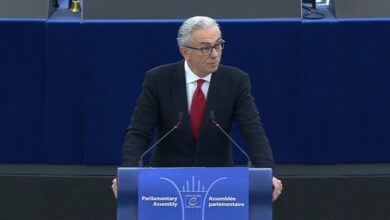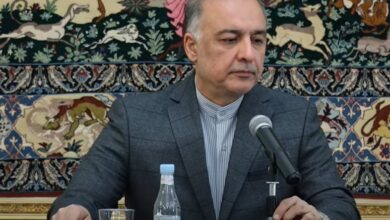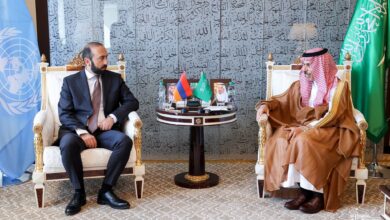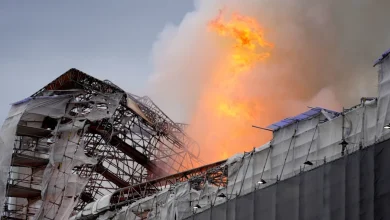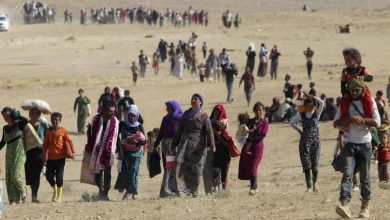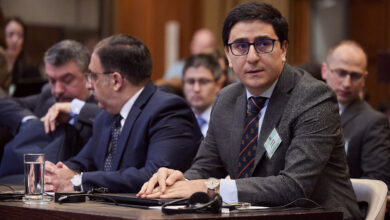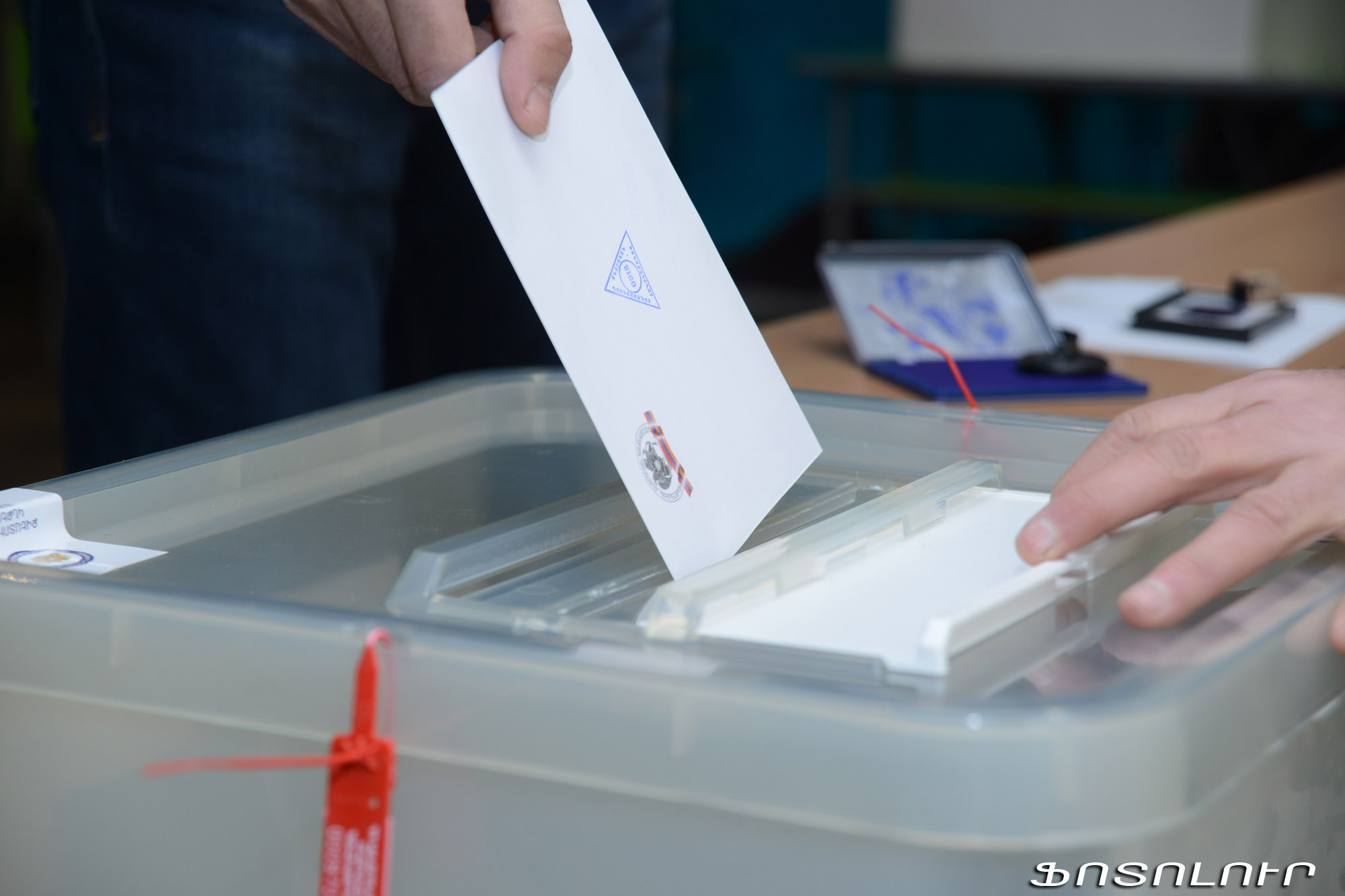
Members of a high level team of foreign parliamentary experts invited by the Armenian Free Society Institute to assessArmenia’s adherence to international election standards today declared the 18 Feb. presidential election to be “generally free, fair and transparent”.
The independent team, headed by UK Member of Parliament Gisela Stuart and Lord Chris Rennard of the UK House of Lords, and joined by other parliamentarians and political journalists, spent election day touring much of the country surrounding Yerevan, visiting over 20 polling stations and speaking with electoral officers, party representatives and ordinary voters.
Addressing a press conference in Yerevan today, team member Paul Keetch, a British Liberal-Democrat MP until he stepped down in 2010, said he had been an observer in elections from the US to Albania, and had even been physically ejected by Albanian authorities for his criticisms in a past vote. “From what I could see, there is no question in my mind that this election was free, fair and transparent, and incorporated robust checks and balances designed to make it that way.”
Lord Rennard noted that, prior to election day, the group had met with the representatives of various competing campaigns, asking each what they feared most in the process. Several of the campaigns listed voter impersonation and vote buying as particular concerns. “From what we could see, we could found no widespread basis for complaint,” he said.
Mrs. Stuart listed several matters which the team did see. For instance, there was a portrait of the incumbent president at one rural polling station visited. It was quickly pulled down. At another poll, there were questions raised by an opposition party representative about the address listed for one of the voters. “This is the kind of irregularity that I have seen in every election I’ve ever witnessed,” Mrs. Stuart said.
Several of the team members noted concerns about the ink used to stamp voters’ passports. Prior to the election, there had been concerns about stamps disappearing, thus allowing multiple voting. The team took ink samples at every polling station and detected no problems. But even had there been, they noted that the stamps were just one part of a three-step process to prevent vote fraud. “You have more checks in this country than we have in the UK,” noted Peter Hayes, a long-time British political correspondent and broadcaster.
Several team members said they were particularly reassured to note a consistency between pre-election opinion polls, exit polling, and the actual election result. “If one candidate gets a third of the vote and comes in second, that is a sign of democracy in action and a competitive political system,” Mrs. Stuart said.
The advisory team has been asked by the Free Society Institute to compile its observations and those of all 12 of the international observer teams accredited for Monday’s election, and to advise on further improvements that might be adopted for the future.


